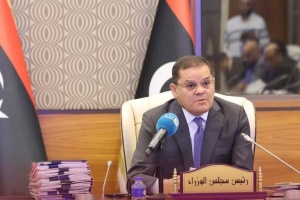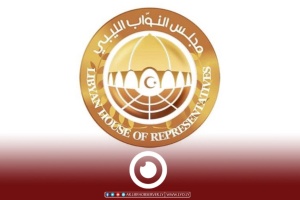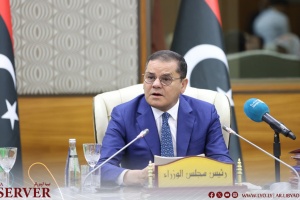House of Representatives Speaker, Aguila Saleh, has said that the decision to allocate a budget for the so-called Development and Reconstruction Fund, headed by Belqasim Haftar, for the next three years is a well-considered decision aimed at ensuring the continuity of projects and the fulfilment of obligations without financial obstacles. He warned against attempts to disrupt the fund's work.
In his speech in Derna, Saleh attacked the Government of National Unity, saying it had "not completed any valuable projects," contrasting the fund's achievements on the ground with what he described as the government's spending on "non-existent projects," according to his assessment.
Saleh's statement comes amid intense disagreement and popular rejection of the budget's approval. On June 2, the House of Representatives discussed a proposed budget allocation for the "Reconstruction Fund," headed by Belqasim Haftar, amounting to 69 billion dinars over three years, at a rate of 23 billion dinars annually. The session witnessed a verbal altercation before concluding with an agreement to form a committee to monitor this budget.
On June 3, the official website of the House of Representatives announced the approval of a budget of 69 billion Libyan dinars for the Reconstruction Fund during an unannounced session. However, 113 members of parliament refused to pass the budget, refusing to recognize the approval session, which was attended by only 25 members. They described it as illegal, as it did not achieve the quorum necessary for the session to convene and make crucial decisions.
In this context, Presidential Council Head Mohamed Menfi addressed an official letter to the Speaker of the House of Representatives, stressing the need to adhere to the constitutional and legal process for approving the state's general budget. He warned of the serious repercussions of any unilateral measures that could lead the country into a severe economic crisis.
Prime Minister Dbeibah had previously announced, during a meeting with several members of the High Council of State, his categorical rejection of "any parallel spending paths outside the legal framework," warning that such practices "create huge financial burdens on the state and cause deterioration in the value of the Libyan dinar."
A Central Bank of Libya official previously warned of a stifling economic crisis if the House of Representatives fails to grasp the seriousness of its decisions to control public spending and respond to the bank's "call for help" to save the national economy and the value of the currency.







